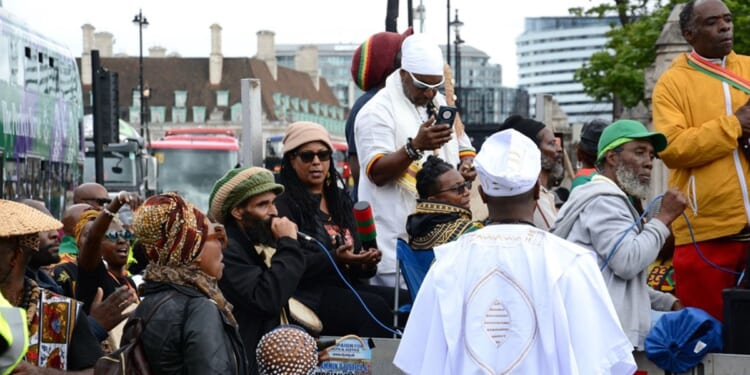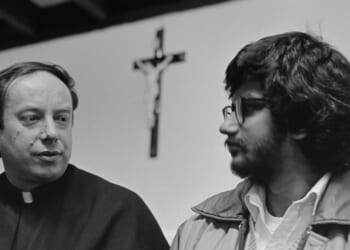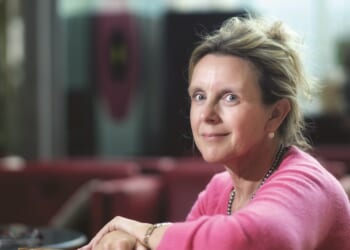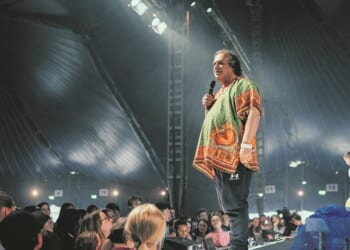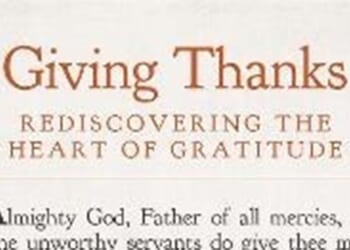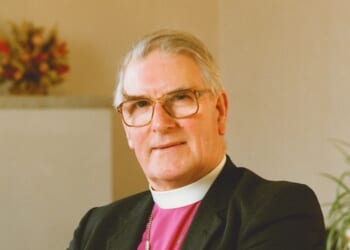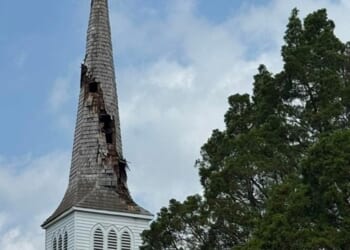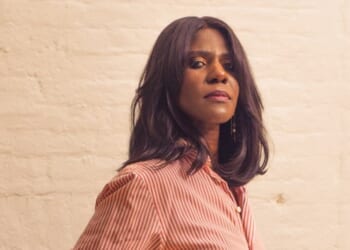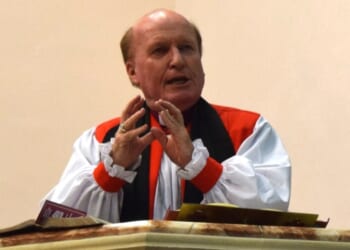THE audience for The Rivers of Repair, at St Pancras New Church, in London, did not wait for the event to begin to articulate the grip that the transatlantic trade in enslaved people still exerts on identity and geography.
Across the box pews of the church — an early-19th-century Greek Revival landmark opposite Euston Station — verbal exchanges of “I’m a Dundas,” and “I grew up near Drax in Yorkshire, linked to Drax Hall Plantation in Barbados,” witnessed to Britain’s 400-year involvement in the Caribbean.
Part of Black History Month 2025, The Rivers of Repair, held on Wednesday of last week, began with a soloist singing “Many Rivers to Cross”, accompanied by the Soul Sanctuary Gospel Choir and the Heirs of Slavery Choir. Then the Bishop of Croydon, Dr Rosemarie Mallett, said that the evening of the spoken word and music would offer something contemporary and relevant, reflecting conversations about reparative justice, “conversational tributaries making up the ‘rivers of repair’”.
Dr Mallett warned that we were in for an intense evening, hearing brutal and uncensored texts. The trade in enslaved people, she said, was a crime formally acknowledged only recently, and then half-heartedly. The perpetrators of slavery were Europe’s great maritime powers, including the UK, between the 1600s and the 1800s. The victims of their crime, she said, numbered 50 million, encompassing those taken captive in Africa, those born into slavery in the Americas and Caribbean, and those who died on the Middle Passage. Caribbean plantations were concentration camps, where slaves lasted three years, she said; and slavery’s motivation was greed.
The gospel singer Tracey Jane Campbell read the memoir, published in 1831, of Mary Prince, enslaved in the Turks and Caicos Islands. It recorded a life of standing in salt water from 4 a.m, performing heavy labour while covered in untreated blisters, and being beaten for not transporting sacks of salt quickly enough. Ms Campell sang the most harrowing lines, and the melodies underscored the horror.
The author of Blood Legacy, Alex Renton, read out a letter written to his ancestor in Barbados, in 1774. The communication referred to the purchase of “ten negroes” and the intention to delay marking (branding) them, until the ancestor gave his blessing for his initials to be used on the searing iron.
To effect the 1833 Act for the Abolition of Slavery throughout the British Colonies, plantation owners were bribed with £20 million — worth £20 billion in today’s money. Dr Mallett said that the plantations’ intensive farming methods had left the land depleted, and industrialisation passed the Caribbean by: “Two centuries of slavery was followed by one century of neglect.” And the legacy of the 19th century’s scientific racism, she said, continued to perpetuate inequality: “Slavery did not end with abolition. Colonisation did not end with independence. It was repackaged.”
The final part of the evening focused on reparatory justice. The abolition movement, Dr Mallett said, was “one of history’s most significant faith-led campaigns for justice”. But, she continued, the Church of England acknowledged the part that it played in slavery only in 2006, reflecting a history that included Queen Anne’s Bounty, established in 1704, and the 1807 so-called “Slave’s Bible” (Comment, 3 March 2023). In 2022, the Church created the Racial Justice Unit (News, 26 August 2022).
Tom Trevelyan read his family’s letter of apology to the people of Grenada, presented in 2023 to the Prime Minister, Dickon Mitchell, and described the £100-million education fund established in Grenada, as reparation for the profits that the Trevelyans made from slaves and abolition compensation. Reflecting on post-war Germany, the Revd Leon Dundas, a former head of prison inspection in Jamaica, said that reparation should never cause new harms.
Between the spoken-word items, Bob Marley’s “Redemption Song” electrified the atmosphere. Dr Mallett concluded: “The ‘rivers of repair’ are long and hard to navigate, and we will only come to the healing sea when the wrongs have been addressed.”

